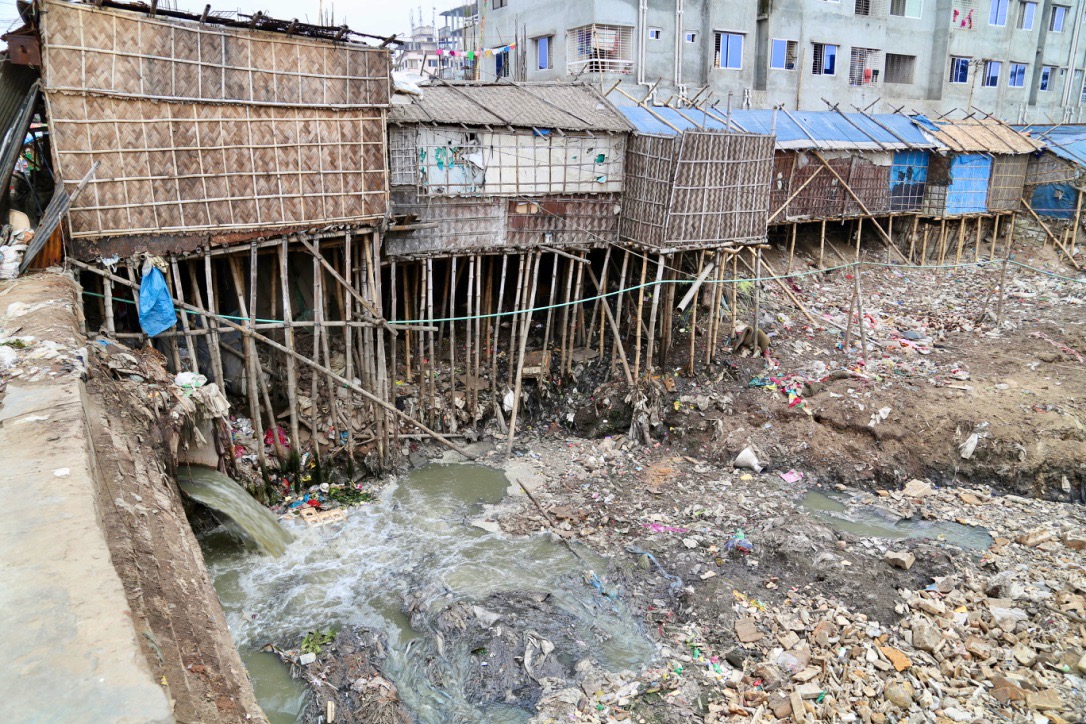Transparentem’s initial two-year investigation of leather tanneries in Hazaribagh, Bangladesh, documented widespread abuses, including gross environmental degradation, child labor, and hazardous working conditions. Those abuses directly affected some 30,000 workers and indirectly affected hundreds of thousands more people in surrounding areas.
Transparentem scrutinized the links between Hazaribagh tanneries, or their apparently affiliated manufacturers, and eleven US and European companies. Beginning in October 2016, we presented individualized Primary Intelligence Notes (PINs) to those brands and retailers. We carefully described what we did and did not know about how much, if any, leather from Hazaribagh may have wound up in their footwear or handbags. Most of these brands and retailers took swift action, starting in the grace period. We began to disclose the consolidated reports, noting brand and retailer response, in late March 2017.
For forty years, this cluster of more than 150 tanneries harbored grave human rights abuses, and was known as one of the world’s ten most polluted places. On April 8, 2017, the Government of Bangladesh enforced a Supreme Court order to close down Hazaribagh’s wet tanning operations and cut water, electricity and gas to the tanneries. The action was a vital step toward the industry’s relocation to a more sustainable tannery estate in Savar.
The Bangladeshi government and leather industry still must overcome significant challenges before they fully protect the people and environment in and around Hazaribagh and Savar. We will continue to monitor the remediation and restoration process as that industry settles into its new home.
More information
See also this AP News article for additional information about this project.





